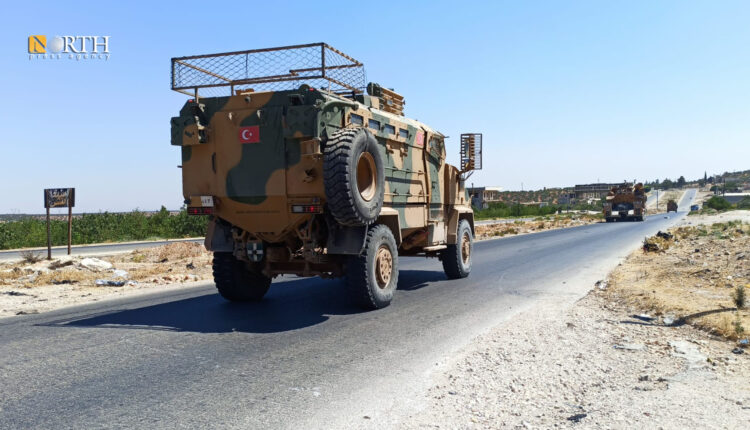
By Abdulsalam Khoja
QAMISHLI, Syria (North Press) – Amid the political shifts in Syria following Dec. 8, 2024, and the fall of the al-Assad regime, international roles have changed significantly, with some regional and global powers emerging in new roles on the Syrian stage.
Despite the diminished influence of Russia and Iran, Turkey’s presence has become more prominent, as Turkey seeks to expand its influence in northern Syria and assert control over the political scene in Damascus.
Although months have passed since the fall of the Syrian regime, the future of foreign presence in Syria, particularly Turkey’s, remains speculative, especially with ongoing Turkish attacks against the Syrian Democratic Forces (SDF), following a Kurdish-Turkish peace initiative launched in Ankara, and discussions about its impacts on Syria.
Turkey’s presence in Syria
Hani Suleiman, director of the “Arab Center for Research,” told North Press that despite the declining roles of Russia and Iran, the presence of other parties has increased to fill the vacuum and search for new roles. This is particularly evident in the growing Turkish presence and its relationship with the government in Damascus.
Walid Choli, a researcher at the “Euphrates Center for Studies,” noted that initially, there were speculations that Turkey would withdraw from northern Syria, but over the past three months, indicators have confirmed that Turkey has become more influential in the details of the Syrian political process.
Choli stated to North Press, “This increasing influence could negatively impact the peace initiative in Turkey, as achieving internal peace in Turkey has become tied to external gains. The more the opportunities for expansion and dominance of the Justice and Development Party (AKP) grow, the further it moves away from any path to internal peace.”
Leaders of the SDF have stated on several occasions that imminent understandings with the government in Damascus were thwarted by Turkey.
Last week, the Syria’s Transitional President, Ahmad al-Sharaa, and SDF’s Commander in Chief Mazloum Abdi, signed an agreement for the integration of forces and self-administration institutions into the Syrian state.
Following the visit of Turkish Foreign Minister Hakan Fidan to Damascus on March 13, where he led a high-level delegation, he mentioned that they conveyed their concerns to Damascus about the agreement with the SDF.
Transitional understandings
Hani Suleiman pointed out that the peace initiative launched by the leader of the Kurdistan Workers’ Party (PKK), Abdullah Öcalan, in late February, “may offer an opportunity for communication or a truce with the Syrian Democratic Forces (SDF).”
He said that any agreement between Ankara and the SDF would likely be “temporary” and believes that “the Kurdish issue and the SDF contradict Turkey’s agenda and objectives, and there can be no complete or fundamental points of agreement. The best outcome will be transitional understandings and a kind of appeasement, accepting the status quo.”
He emphasized that Turkey is present in Syria and will remain there to solidify the foundations of the new government in Syria and to counter any presence of the SDF, according to his view.
Walid Choli believes that the current situation will affect Turkey’s relationship with the SDF. “The Turkish army and its allied factions continue military operations against the SDF, with signs of a possible escalation unless Turkey’s actions are curbed internationally.”
